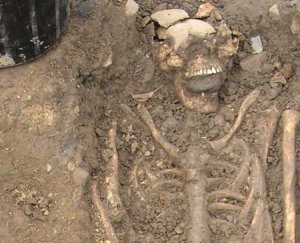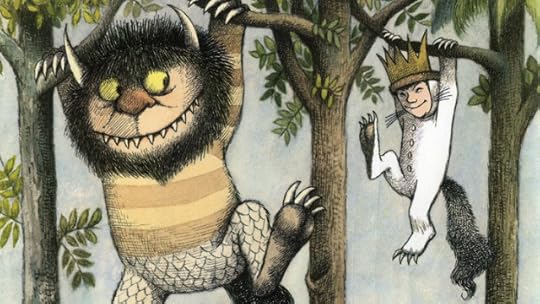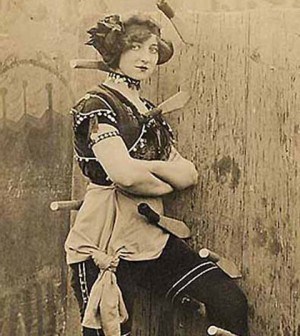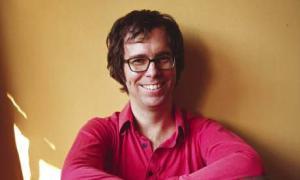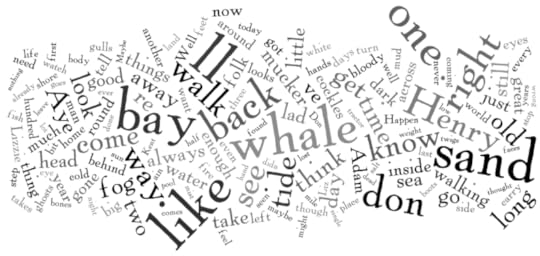Simon Sylvester's Blog, page 16
July 14, 2014
From the dead
This is amazing: two skeletons have been discovered in Ireland with stones wedged in their mouths. This was supposed to prevent a return from death. In other words, these two were thought to be vampires or revenants. Consider the conviction needed to force a large stone into the mouth of one corpse – and then a second. Imagine the sound of stone on teeth as it was wedged inside. There was no doubt in the minds of whoever buried these bodies that they were coming back.
I wrote a flash story a year or so ago, recalling a lucid dream in which my daughter and I were laid out on slabs with stones in our mouths. I could taste the grain of the stone on my tongue. Reading about these skeletons gave me the shivers. It also, bizarrely, made me hungry for the second series of The Returned…
Full article here, and here’s some Mogwai to keep you sharp. Get your spook on.


July 11, 2014
Mountains
I’ve been climbing a mountain of college work, which is why I haven’t blogged for a while. There are a few things to report, though: my first ever panel event, for Waterstones Argyle Street in Glasgow; another open mic for Verbalise in Kendal; and some lovely reviews for The Visitors.
In the weeks beforehand, I made myself quietly terrified of the panel event, though I loved the theme. It was called ‘Islands Are The New Cities’, and brought me together with two other crime writers and a chair to discuss the attraction of islands as story locations. This is something I’ve already explored a little right here, and I was looking forward to discussing it. The terror came from the unknown: I can prepare for a reading, but had no sense of what the panel would involve.
I needn’t have worried. The Argyle Street Waterstones is a glorious bookstore, chair Douglas Skelton was funny and relaxed, and the other writers, Craig Robertson and Alex Gordon, were really engaging and easy to talk to. I was surprised at how far the discussion ranged. From a springboard of introducing our own books, we ending up debating alcohol, Faroese Hell’s Angels, caravan parks, the place of fantasy in crime novels, being a teenager in a small town, our daily working routines, tax deductible research and grandmothers. Douglas kept us on track whenever we wandered too far.
For the record, I think islands are perfect locations. They are miniature worlds, with all their own rules and laws contained within the boundaries of the coast. My friend Ben maintains there are two stories: either ‘boy/girl leaves to seek fortune’, or ‘trouble comes to town’. Islands make that sense of arrival or departure far more tangible, more immediate. The physical space of an island is an entire universe. Anything can happen on an island, and the rest of the world will never know.
There was a great moment before the event kicked off. I’d just met Alex, who is a veteran sports writer turned novelist. Breaking the ice, I pointed out that he, I, Craig and Douglas were all wearing shirts in shades of white or blue. I suggested that we should sit in a row from lightest to darkest, ha ha ha. He fixed me with a piercing eye.
‘What kind of a mind even thinks like that, man?’ he said.
On to Verbalise. It was packed out for headlining act George Wallace, pictured above. George is an award-winning beat poet on a busman’s holiday from his residency in the Walt Whitman Centre. I was delighted to find my friends Joy France, BigCharlie Poet and Harriet Fraser at the open mic – I don’t see them as often as I’d like, and it was grand to catch up.
Almost until the moment I walked onstage, I was umming and aahing over which story to do. I’d settled on either The Matador, which is an old piece about a Spitfire pilot, or new story Cuts Like A. I’d already decided that if I did the second piece, I was going to read without notes. My dilemma was that the story was brand new – only a few weeks old – and I didn’t feel I’d quite yet come to know it. During the first interval, I raced off to scribble it from memory in my notebook, writing from start to finish without breaks. I hit everything important, as well as adding a few things in, and that gave me confidence to gamble on the new piece rather than the safety of the old.
It went well. I loved performing the story, using my hands and face and eyes to invest in my characters. I’m coming to feel more and more that this is how to read a story live. (David Hartley is right.) Writers read best when they’re committed. Cuts Like A is about a drunken knife thrower, and I enjoyed being able to mime the knives, and mime the rotating disc to which his wife is cuffed – to make those actions part of the story. I simply couldn’t have done that with paper in my hand. It felt even better than the Flashtag Short Short Story Slam, and it’s good to think I’m still making some progress on my reading. I’ll never be a professional performance storyteller, but that’s the sort of place I’d like to move towards.
Cuts Like A is here, if you’d like to read it.
The other open mic acts were very good. I’ve always found Verbalise to be consistently strong. Harriet, Joy and BigCharlie were brilliant as ever, and I enjoyed the work of those writers I haven’t yet met. After the second interval, George Wallace took the stage by storm. The next half hour was like being inside a Tom Waits album. I especially loved his first poem, I Want To Go Where The Garbage Men Go, a beat epic about pre-dawn New York. You can (and should) read it here.
Finally, the reviews are still coming in for The Visitors. Everyone so far has been really kind. It’s humbling to think that people are enjoying the book. I’m keeping a round-up of press articles on The Visitors page, and there are more reviews on Amazon and Goodreads.
If you’ve read the book, please do leave a review. After spending so long inside my own head while writing the novel, it’s simultaneously petrifying, compelling and rewarding to discover what people think of Flora, Ailsa, Izzy and the island of Bancree.
I’m going to sign off with Joy France and her mesmerising poem Home Truths. This is important:


July 1, 2014
Tipping
I had two brilliant days on The Hollows last week, and it’s entirely thanks to my friend Ali. I’d just finished reading a draft of his new novel - which is absolutely brilliant and is going to be massive – and called to talk to him about it. We spoke for a long time about lots of things, and he ended up clearing my head of cobwebs I didn’t know I was carrying.
This is how it is: I’ve been enjoying my first forays The Hollows, but it’s been tough going in places, because I’ve been trying to build the story chronologically, making each current part of the story as clean and tight as possible before developing the next. It was only through talking to Ali that I remembered that I don’t write like that. I’d forgotten that I’m writing for me. Or, as Ali put it: “Writing’s a big fuck you to the world.”
This is an abstract thing to explain to myself. It’s not like I was writing someone else’s story, or writing with someone else in mind. But I think I’d spent so long redrafting The Visitors that I’d forgotten that it was rough, too, at the beginning; and, in starting to write The Hollows, I essentially picked up the same point of bug-eyed perfectionism that I left The Visitors. I was working back-to-front. I’d forgotten that some of whatever strength I might have as a writer comes from rewriting - from redrafting and reworking. I’d forgotten the unfolding joy of a first draft – of cutting loose, of jumping feet-first into all that glorious blank white empty space. Talking to Ali reminded me that this is my story, and I need to tell it my way.
When I had my next writing day, I sat down, disabled the internet, and raced through 3,500 words. The next day, I wrote the same again, as well as tearing apart swathes of what I’d already written, rebuilding the plot of the first third. It was exhilarating. I ignored the chronology and jumped ahead to work on scenes and chapters I’ve been dreaming of for months. In writing them, brand new scenes unfolded as though they’d been there all along. I worked late, and it hurt to blink by the end of day two, but I’d turned 18,000 words of clunky plot into 25,000 of viable draft. There’s a forever still to go, but the story is starting to move.
It’s funny how time and memory contrive to fool us. The Visitors didn’t write itself until I was well over halfway through. The first 50,000 words were hard, and the second didn’t need me there at all. That’s the bit I remember. Since then, I’ve been so immersed in my redrafts that I’d forgotten it took six months of slog to hit that tipping point.
First drafts are where the fun is. I’m going to dive in and get messy, and rejoice, and despair, and laugh, and burn myself out, and despair some more, because that’s how I live, and that’s how I write. It’ll take months from now, or years, but I finally feel like I’m getting The Hollows on course for where I want to go.


Cuts Like A
What with everything else lately, I totally forgot to mention that Flashflood journal published my short story ‘Cuts Like A’ as part of National Flash Fiction Day, which was really nice of them. The story is here. It’s about a knife thrower and his long-suffering wife.


Author interview at Scottish Book Trust
The good folks at Scottish Book Trust have interviewed me for their regular series of author confessions. They gave me interesting questions, and I enjoyed working on the answers. I talked about word counts, dream jobs, my favourite bookshop and Where The Wild Things Are. The full interview is here. I also confessed that I’m the spitting image of godlike genius Ben Folds. Here’s the proof:
Ben Folds
Simon Sylvester
Man, I love Ben Folds. Listening to Rockin’ The Suburbs as I write. What a glorious album.
Here’s something more recent:


June 20, 2014
Detonation

These are extraordinary – German photographer Martin Klimas drops these statuettes, and rigs his camera to trigger at the sound of their impact. In doing so, he creates a threshold: giving these porcelain figurines an explosive moment of life at the exact point of their death. His website has more of these amazing images, as well as other high-speed photographs. Mesmerising work.


June 14, 2014
This one book – Henry Sugar
A couple of weeks ago, Daniel Carpenter came up with the idea to blog about a book that changed everything he knew about reading and writing, then pass the baton onto others. He wrote, brilliantly, about The Wasp Factory, then nominated David Hartley and myself to continue the chain. David wrote, promptly and also brilliantly, about Frankenstein, then picked Benjamin Judge and Nija Dalal to follow. Benjamin Judge (seriously: who is Benjamin Judge? I’ve read in Manchester three times, and never met him. He’s either a front, Lawnmower Man, or a ghost) then wrote with intimidating speed and grace about Tom Clancy’s Red Storm Rising, which means I’m late and under pressure.
The brief is to write about a book that changed the way I understood literature – that made me realise “what writing could do”. That’s a tough call. My first instinct was also for The Wasp Factory, which had a massive impact on me. But I think, on reflection, that others that hit me deeper, if not harder, and I can’t come close to Dan’s thoughts on what remains an astonishing book. I’ve spent a lot of time weighing up what to write about instead. Fingersmith by Sarah Waters is my biggest recent influence, but that was more like rebalancing my compass. Bruce Chatwin’s Songlines shook me to my core, and Jasper Fforde’s Bookworld series changed the way I thought about stories. Before that, the Harry Potter books got me reading again after a long period of not reading at all.

In the first draft of this post, I wrote 500 words about The Proud Highway by Hunter S. Thompson. The first scintillating volume of his letters was the inspiration that started me blogging while I was backpacking in Australia; that blog taught me to write (albeit like him), which led to a job in magazine journalism, which led to me writing fiction in my words of my own…
I love Hunter S. Thompson. He remains an inspiration for his sheer, indomitable rage against the greed, corruption, insanity and monstrous terror of corporate government. His prose is flawless, and The Proud Highway was the book that definitively led me to becoming a writer.
But – having written 500 words about Thompson and his letters – I stopped short. A book I hadn’t thought about for years swum into my head, and I knew it mattered more. It’s The Wonderful Story of Henry Sugar (and Six More) by Roald Dahl. I don’t know when I first read Henry Sugar, but I think it was during the single year I spent in an Edinburgh boarding school while my parents lived in Germany.
I remember almost nothing before the age of 10 or 11, and my time at the boarding school sneaks up on me like spidersilk – fleeting, single strands, flickering with light, then gone. And although I don’t remember exactly, I know that I spent a lot of time in the school library. I know I read King Solomon’s Mines, and all The Hardy Boys books, and a bunch of Stephen Kings. I would have read Dahl’s children’s fiction when I was younger, but I’m pretty sure that was when I stumbled upon his more adult stories.
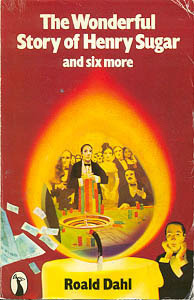
I rediscovered Dahl when I was in my early twenties. I found all his works in a charity shop in London, and bought the lot. I gorged on them. His stories are consistently excellent, but Henry Sugar is the strongest of many extraordinary collections. The tale of the boy and the turtle, or the mysterious hitchhiker, or the greedy landowner and the treasure hoard, or the title story, all explore the no-man’s-land, the thin threshold between the real and the impossible. They are all perfect stories, delivering just desserts to protagonists and antagonists alike. Another of the pieces, The Swan, haunts me still; Dahl’s tale of bullies brutalising a class loner is gut-wrenching, brilliant, beautiful, devastatingly sad and entirely magical.
Henry Sugar is ferocious. But how does it redefine my idea of what books can do? It didn’t have that impact on me as a child, certainly, because I had no concept of books doing anything other than taking me away – I simply read and read. But in my twenties, on rereading Henry Sugar, the ghost of it flooded back – the sad magic of The Swan sluiced through me, and it was utterly transporting. Where Sarah Waters holds back from explicit fantasy, and Neil Gaiman commits to it completely, The Wonderful Story Of Henry Sugar perfectly inhabits that edgeland between reality and fantasy. This is important because I see, now, how I’m drawn to that same space in my own work. I don’t want to write like Roald Dahl – I couldn’t – but I’m trying to walk that same tightrope between two places. And in that sense, no other book has so changed the way I think about books – about writing – about reading – about living.
So that’s me. I’m going to nominate Iain Maloney and Ali Shaw to continue the series, though I haven’t asked them yet.


June 10, 2014
The destination
The Visitors was officially published on Thursday, and I was away all day on a college trip – for the second year in a row, four of my students had made it to the semi-finals of the World Skills competition. We’d driven down to Hinckley on Wednesday, stayed up till 1am practicing their pitch, then risen at 6am to practice and get to the venue. They had a 5-minute presentation to deliver, and we stayed all day, waiting for feedback. Throughout that time, I was quietly flooded with emails, texts and messages – so many that I felt helpless – I could barely respond. Friends sent me photos of the delivered book – out of my hands, now, and into theirs – and all the while I sat with my students, and talked with other tutors, and wandered round Hinckley College. It felt incredibly weird to be so far removed from the book on its publication day. The students succeeded with their presentation, and won a place at the finals in November. We left at 4pm. It was supposed to be a three-hour drive back to Kendal, but took more than five. The motorway was a purgatory of second gear. It flattened me. I sat in traffic jams and wished I could walk along the central reservation, alone in a sea of stationary cars, the hubcaps and ring pulls and single shoes scattered all around.
Back in Cumbria at last, I dropped off the college car and walked an hour through the gloom to get home to my amazing wife. By the time I turned the computer back on, I’d had scores of congratulations from friends and family. I felt humbled and very lucky. Then, in a mark of the rollercoaster this trip has become, I received an email saying I hadn’t been awarded a Northern Writers’ Award. That’s disappointing, though I’m still very glad I applied.
Thursday was a topsyturvy day, but then I woke on Friday to the news that my short story What I’ll Do To Be In Love With You had been accepted by the National Flash Fiction Day anthology – and then, a few hours later, the amazing Tania Hershman alerted me to the presence of my story Art Is Long, Life Is Short on the BBC Opening Lines longlist. I’d long-since written that off as a rejection. Talk about frazzled. On Friday night, Mon and I drank a bottle of posh fizz and sat and talked it over. That felt good.
I don’t entirely know what to say about The Visitors being published. I’m proud of what I’ve made, and I’m delighted to share it with other people, but my good friend Ali Shaw warned me that it might feel something of an anticlimax, and he was right. I don’t feel any different in myself. I’m still planning lessons, ploughing through my mountain of marking, and stressing about whether my four-month hay meadow time lapse is going to work out. Publication hasn’t changed any of that. But it is an affirmation of all I want to do - to coax the stories in my head out into the light. It has also reminded me how blessed I am in my friends – I feel almost ashamed to have had such support from such incredible people. These few days have made my heart beat bigger, and I’m thankful.
All this has whetted my hunger to push on with the next novel. In that respect, I guess The Visitors is the culmination of the first stage of a long road. More than anything else, I know, with every cord of my being, that this is the right path for me. Writing is a journey, but publication is not a destination. I don’t want it to ever end. I want to walk till my heart gives out.


May 26, 2014
Flow
On a good writing day, I write 2,000 words. When I’m working well, that’s fairly consistent. Whether it’s 1,800 or 2,500, I always seem to end up in the ballpark of 2,000. In terms of quantity alone, a month of 2,000 word days is a 60,000 word manuscript (which is the philosophy of NaNoWriMo, of course).
Obviously there’s an awful lot more to it than that – 2,000 a day doesn’t include all the back-peddling, redrafting, tea, editing, notes, research, cursing, blogging (!), procrastination and rewriting – and it doesn’t include the bad days, when it’s a struggle to carve out 400 words. I have plenty of bad days as well, especially at the start of a new project, when I’m still feeling out my way, finding the right path. For context, I don’t believe that the key to good writing is simply writing and writing and writing until something mystic clicks and the good stuff comes pouring out - check out J. Robert Lennon’s ‘ass-in-the-chair canard’.
When I started writing The Visitors, it was completely plotted out. There were about thirty chapters, and each chapter had a paragraph, or maybe just a line, detailing what would happen. That plan became redundant within weeks, if not days. By the time I was even a quarter of the way through, my chief antagonist had switched to someone completely new, and the plot expanded hugely – the final draft has around sixty chapters. But the biggest changes lay in how the characters escaped me. As I wrote them – as I spent more time with them, and came to know them better – I realised they were evolving. They were doing things I hadn’t expected, but those things became inevitable and essential as their personalities developed. Their autonomy dictated their story. Once that happened, and they were set upon a path of their own making, the manuscript generated a momentum that I could not control. In the final two or three months, I’d regularly write 4,000 or 5,000 words in a session. On the last day of writing, I wrote 11,000 words in 14 hours. That surge, that flow, was intoxicating. I drowned in my characters, drowned in the island I’d created. The story became a gyre, and I was tumbled in the centre.
I’m now about 16,000 words into The Hollows. On each of my last four writing sessions, I’ve cut around 1,000 words, and written around new 1,000 words. The overall count isn’t changing much, but I think I’m making progress. I’ve learned a number of things along the way, about writing, and about myself. Because I had to go through such an excruciating redraft with The Visitors, I originally tried to plot out The Hollows as tightly as I could. Each chapter had multiple paragraphs and notes, with detailed ideas about the how the story would unfold. It was comprehensive. I was decided: this time round, the novel was going to write itself.
I should have known better. I raced off to a strong start, writing the first 10,000 words in three days. Then I applied to the Northern Writers’ Awards for funding towards a research trip. As part of the application, I had to include a synopsis of The Hollows. Seeing the plot condensed into a single page, I realised at once that the story was too tight. It had no room to breathe – I’d strangled it with structure. It was far too dense. I ditched all my planning and rewrote the synopsis for the purest story I wanted to tell – about a man who loses his memories, and the woman who goes to find them – and sent it off. I haven’t heard back yet, but regardless of how my application turns out, the process of writing a new synopsis was revelatory, and for that alone I’m grateful.
I want to start The Hollows right. Unravelling some of my first draft has been heavy going, but it’s important to me to know I’m on a better path. I’m getting there. I’m starting to meet my characters. I’d forgotten that I didn’t always know Flora, and Izzy, and Ailsa, and John – it took time to find out who they were. I’d forgotten, in the dizzying exhilaration of finishing The Visitors, that it wasn’t always so easy to write. The flow comes only after all the hard graft has been done.
On Friday, I finished my novella The Year of the Whale. That’s been five years in the making, including sessions when I’d struggle to chip away at 200 rotten words. But on Thursday, the day before my deadline, I soared through 5,000 words with joy in my heart. That was the flow, and I’d forgotten how it felt. I’d forgotten that I could feel so engrossed in my stories – that I could drown. That’s where I want to get to with The Hollows. That’s how I want to finish, whether it’s in six months or one year or two years’ time. But I know, now, that all the graft comes first.
My friend Ali Shaw believes you can’t know if a novel will go all the way until you hit 20,000 words. Author Matt Haig feels the same, but his mark is 40,000. Word counts only matter for the person counting. Like climbing grades, they measure nothing but an individual’s own sense of progress. They are a poor measure, perhaps, but they are all I have to mark my way: yan, tan, tethera.
The Hollows has been stuck on 16,000 words for weeks, despite long, hard days of work. I haven’t enjoyed that. I crave that sense of flow, when everything makes perfect sense. When I had that moment in The Visitors, I described it as a ‘glittering open highway’. I suspect I’m still a long way off reaching that highway in The Hollows, but it has truly settled me, on completing The Year of the Whale, to remember that the flow comes from the writing – not from the writer. From the story, and not the storyteller. For all the times I beat myself up about not working hard enough, not writing fast enough, not doing more – finishing that novella has been a gift. It has helped me remember why I write. I write to drown. To drown, I need the gyre. To make the gyre, first I have to fill an ocean.


May 24, 2014
The Year of the Whale
Last night, with slightly more than an hour to go before the deadline of the MMU Novella Competition, I finally finished my novella The Year of the Whale. The image above is a randomised cloud of the most common words in the manuscript, which is a really satisfying way to look back on what I’ve made.
I started writing it in 2009, and it has spent entire years untouched, waiting for attention in the dusty recesses of my hard drive. It’s written in first person with a very particular voice, and it’s been strange to return to it so sporadically over the years, and take up the mantle of that voice again. I’ve wanted to finish it for a long time – it was one of my New Year’s resolutions, no less – and I’m thankful to the competition for giving me the spark to get it done. I don’t expect anything to come of it – that way madness lies – but I’m thrilled to have wrapped it up last.
The Year of the Whale is the story of a man called Henry Cowx. He is a fisherman and walking guide in Morecambe Bay, riddled with arthritis and wracked with guilt. His story explores that guilt, and gives some quiet thought to what it means to remember. It’s about walking and place and ghosts and folk tales, and our connections with the land. It’s at the heart of my obsession with threshold spaces. It’s a meditative, elegiac story, and a long way from where I’d like to develop my work – but Henry has never been far from my mind, and I glad to give him closure.
I discussed some of the genesis of the story in my Thievery post for Kirsty Logan.
I’m working my way through some film jobs at the moment, but it’s almost time to get back into The Hollows.


Simon Sylvester's Blog
- Simon Sylvester's profile
- 39 followers


